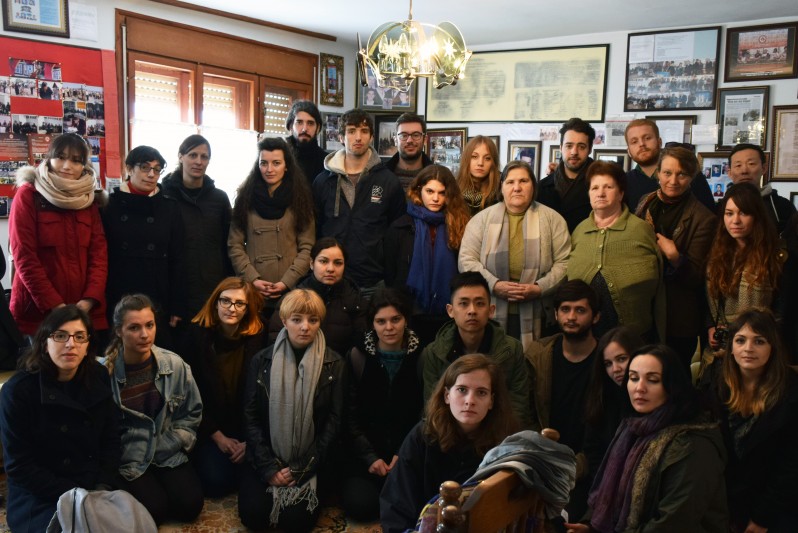
Gaming technology is increasingly being used as an educational tool, and can be a very effective method of connecting young people with events of the past. In a place such as Kosovo, where the scars of recent conflicts are still keenly felt by older generations, this kind of technology can be crucial in helping young people to understand how their history has influenced their present-day situation.
By working together with students and lecturers from the University of Prishtina and a German-based NGO, Forum Civil Peace Service, a cross-disciplinary team of students and staff from Bournemouth University (BU) have begun to develop a storyline for an educational game, which they hope will one day support young Kosovars to connect with their history.
Dr Stephanie Schwandner-Sievers, a social anthropologist, and the driving force behind the project’s development explains its background.
“The idea behind our project was to create a storyline for an educational game which would help young Kosovars and visitors to engage with and understand their past,” explains Dr Schwandner-Sievers, “Through it, we wanted to challenge monolithic – and often nationalist – views of recent conflicts and acknowledge the complexity and contestation of post-war memory in Kosovo.”
“We took our students out to Kosovo in early March 2016, where we spent a week in the company of students and lecturers at the University of Prishtina and German-based NGO, Forum Civil Peace Service,” says Dr Schwandner-Sievers, “Together, we visited heritage and culture sites, listened to talks, heard stories of people’s memories of the conflict and worked in teams to find out information about Kosovo’s recent history.”
“We’re really delighted at how invested our students became in the project and how inspired they’ve been by the people they met. As a result, they came up with six potential storylines for the educational game. The next step for our project is to find the funding to develop one of these into a prototype game.” says Dr Melanie Klinkner, a Senior Lecturer in International Law, who formed part of the staff team from BU.
Thomas Matthews, an Engineering doctorate student from BU’s Centre for Digital Entertainment, was able to share his expertise in game design and development with the team, which was essential for creating their game storylines.
“My research is in the area of prosocial gaming; the idea of using game design to promote social behaviour that benefits others, which is a perfect match with the project. It was a great opportunity to teach others and take back insights that could benefit my research,” explains Thomas.
“The trip taught me that there are still big divides about how Kosovo’s heritage should be presented, even among people of similar ages and background. It also helped me to understand the cultural considerations that are often missed when designing prosocial games, which is something that will help with my research.”
Laura Grace, a BA Archaeology and Anthropology student, shared her experiences of being involved in the project, “The trip to Kosovo was one of the best experiences I’ve ever had. I’m interested in national identities and cultural heritage, and Kosovo is really interesting in relation to both of these. The trip was a fantastic opportunity to explore these interests, and left me feeling much more confident about my future plans and research.”
This project is an excellent example of Bournemouth University’s vision of Fusion - the combination of education, research and professional practice. Laura will be speaking about her experiences in Kosovo as part of a ‘Re-imagining Conflict-Transformation: Making Memory Meaningful’ workshop at Bournemouth University on 6 May.



